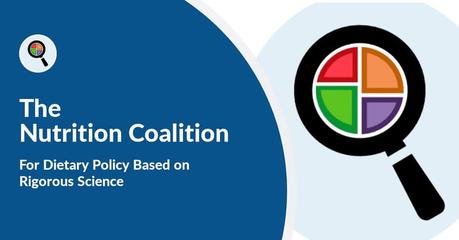
It's been a busy week for the Nutrition Coalition, the US non-partisan organization trying to ensure that US nutrition policy is based on rigorous scientific evidence.
In the first week of June, the coalition sent out two press releases, which were highly critical of the unscientific process that went into creating the 2020 Dietary Guidelines for Americans (DGA).
The coalition also sent a detailed letter to the US government department political leads who are overseeing the guidelines' creation. That letter exposed six allegations of procedural flaws, which the coalition said came from "one or more" unnamed whistle-blower(s) who sit on the guidelines advisory committee.
The coalition is calling on the committee to delay the release of an expert scientific report, due out later this month, to investigate the whistleblower's allegations. The 2020 Dietary Guidelines themselves are expected by the end of the year.
The American people deserve trustworthy nutrition policy based on a comprehensive review of the most rigorous science, especially during this public health crisis when diet-related chronic diseases are among the leading risk factors for worsened outcomes from Covid-19.
- Nina Teicholz, Executive Director of the Nutrition Coalition, in Wednesday's press release.
In the seven-page letter, addressed to Secretaries Purdue and Azar of the US Department of Agriculture and of Health and Human Services, the coalition details six allegations, including a lack of time to finish the scientific reviews and to adopt the reforms for a more scientific approach that were urged by the National Academy of Sciences in 2019.
The coalition also alleges a lack of consistent standards across the various DGA subcommittees, the addition or deletion of scientific reviews without public notice, inconsistent evaluation or exclusion of scientific evidence, and poor communication among the various members of the committee and subcommittees.
The allegations set forth above by one or more members of the DGAC pose a serious threat to the integrity and trustworthiness of the 2020 DGA. Ensuring that all the best and most current science is properly reviewed for the purposes of establishing the 2020 DGA is fundamental.
On June 1, the coalition distributed another press release highly critical of the USDA's draft conclusions for the DGA that appear to continue to recommend Americans eat a low-fat diet. In fact, the new guidelines may even advise reducing saturated fat even more, the coalition says.
The coalition charged that the group responsible for these saturated fat conclusions, the Subcommittee on Dietary Fats and Seafood, is one-sided and unbalanced, with staunch supporters of low fat who have built their careers on that 40-year-old recommendation.
The lengthy and detailed June 1 press release noted:
It is a tragic situation when deeply entrenched, status-quo views cannot be illuminated by the best and most rigorous science. It's not just science that loses but the American public, which will yet again receive antiquated advice, based on weak science, that will quite likely cause harm.
The DGA advisory committee has not publicly responded to these allegations.
If you want to understand more about the research around saturated fats, check out our evidence-based review, A user guide to saturated fat.
More contributions by Nina Teicholz, including videos and conference presentations, are available in the member side of Diet Doctor, which can be viewed for free with our free month trial.
Start your FREE 30-day trial!
Get delicious recipes, amazing meal plans, video courses, health guides, and weight loss advice from doctors, dietitians, and other experts.

